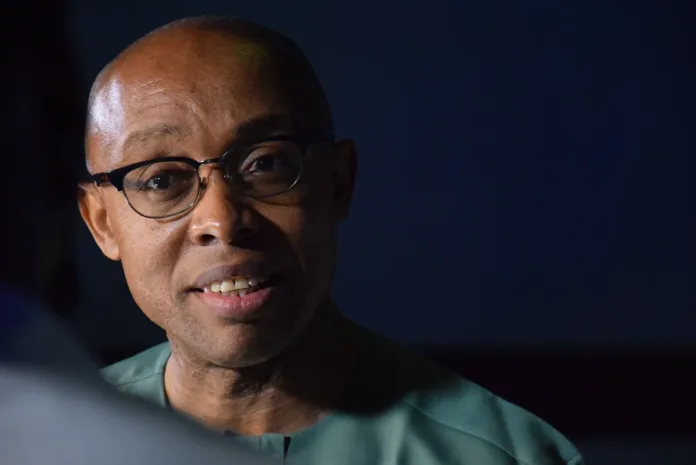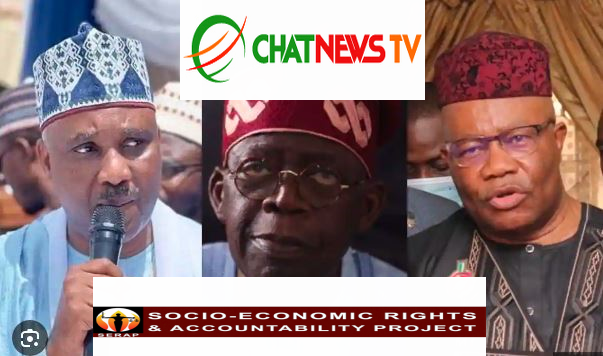“The partiality that inevitably affects judges has been noted in cases with a political flavour.” — David Pannick, KC, Judges, p. 44 (1987)
The state as we know it enjoys three notional monopolies. One is a monopoly of legitimate taxation. The second is a monopoly of the legitimate instrumentality of violence; and the third is a monopoly of legitimate dispute resolution. In Nigeria, all three monopolies are now contested by non-state entities.
Of these three monopolies, many focus on the legitimate instrumentality of violence but it is the capacity of a state to resolve disputes lawfully and peacefully among those who live in it that makes the other two monopolies worthwhile. That is why courts, administrative and even traditional institutions exist.
David Pannick, KC reminds us that “as part of the function of deciding disputes, the courts provide a public service, at almost no charge to customers (who pay for their lawyers but not for the judge and the courtroom).” This is the ideal. Nigeria’s judicial system is in a profound crisis of legitimacy today because of ample evidence suggesting strongly that the requirement that litigants should not pay for the judge or the courtroom may not apply to certain categories, especially among political litigants.
To be clear, the most important reasons for which people sometimes end up in court often are not things to which it is possible to assign any value – dignity, equity, justice, memory, safety or human life. These are all invaluable. Without them, organized society fails. Jurisprudence is the system for organising knowledge about judicial decisions that ultimately deliver and govern these invaluable public goods.
However, judicial business is not confined to these. Many disputes that end up in court involve property or things of material value, such as land, inheritance, shares, stocks, or chattels. Some others may extend to intangibles of value, such as status or reputation. There could also be cases concerning access to political power from which perch the people involved hope to reap benefits that are material in consequence.
These are all things for which the currency of transaction or exchange is money. In Nigerian parlance, that is called “Kudi”. When a court system prioritises disputes affecting things measured in the currency of money over things that are entirely invaluable, it replaces a system of jurisprudence in favour of a preoccupation with “Kudisprudence”.
By way of full disclosure, I did not invent this expression, “Kudisprudence”. I was introduced to it by a friend and school mate of long standing who also happens to be a diligent Senior Advocate of Nigeria (SAN). He has not licensed me to disclose his identity, and I am obliged to respect his anonymity.
Two cases occurred this past week to illustrate how this distinction between jurisprudence and Kudisprudence affects judicial decision making in Nigeria. On 30 October, the police arraigned a member of the House of Representatives, Mascot Ikwechegh, on charges of assault against a gig-economy driver working with Bolt. A now viral video clip showed Mr. Ikwechegh had assaulted the driver in words and deed. He called the driver vermin in different forms and threatened to “disappear” him without consequences, before proceeding to satiate on the driver his thirst for physical violence.
For those conversant with that Nigerian rat-killer, the material on the video clip portrayed Mr. Ikwechegh as the member representing “Otapiapia” Federal Constituency in the Rat Killers Assembly. On his arraignment, the court granted him bail on an oral application in the sum of N500,000 with sureties who only had to show evidence of utility bills for proof of their residence. The case was adjourned for one week.

Two days later, on 1 November, another court in the same Abuja was host to proceedings charging at least 114 children according to the British Broadcasting Corporation, BBC, with treasonable felony. These charges arose in connection with the #EndBadGovernment protests which occurred last August around the country. Arrested in different locations in northern Nigeria reportedly, these children were transferred to Abuja where they had been detained en masse for 93 days.
On arraignment, they all looked “visibly unwell and malnourished.” In their short spell in court, at least four of them suffered fainting feats. Having beheld all of this, the presiding judge promptly rewarded the children with bail in the sum of N10 million each or a total of N1.14 billion Naira, with two sureties each of whom must be a senior federal civil servant of at least Grade Level 15. He adjourned the case to 24 January 2025. These terms were manifestly such that none of these children can hope to comply with.
This is a court system in which material things, such as status, make all the difference between receiving justice and being on the end of the administration of law even when it is manifestly unjust. The parliamentarian received jurisprudence from a court system that was happy to serve malnourished children with anything but that.
There is an even more worrying scenario to which the expression “Kudisprudence” may be applied. That can be the case where a judicial decision follows upon a bargain – implicit or explicit – between a judge or magistrate on the one hand and a party (disclosed or undisclosed) on the other. This was the sense in which Stanislav Andrzejewski, the former Polish soldier and prisoner-of-war who founded the Sociology Department at the University of Reading in England coined the word “kleptocracy” in 1968, which he defined as “a system of government [that] consists precisely of the practice of selling what the law forbids to sell.” Among the things a kleptocracy can buy and sell in its political open market, Professor Andrzejewski included “even judges.”
The fact that Kudisprudence in the second sense occurs in certain courts in Nigeria is not in question. Many disciplinary cases concluded by the National Judicial Council (NJC), no less, testify to this fact. The only issue left to be determined is how pervasive this is. One thing seems clear: political cases increasingly appear to suggest – very much as David Pannick writes – a higher predisposition to what look like outcomes of Kudisprudence.
For evidence of how this system of Kudisprudence can work, a recent report by the advocacy group, Citizen Gavel, names a notorious former governor and current minister who has a long track record of “building judicial infrastructure and offering other forms of support” to the judiciary in acts of generosity that “often coincide with periods when he has faced significant legal challenges. This raises the possibility that these actions may have indirectly influenced judicial decisions.” Law professor, Fidelis Oditah, SAN adds that in the courts in the Rivers State disputes may have been “corruptly procured” and that the decision have more than a whiff of “a rat” about them.
In its nature, judicial quid pro quo does not necessarily occur on social media or with receipts. Verified cases are more likely than not to be fewer in fact than the number of actual incidents. Many more followers of the recent goings on in Nigeria’s judicial system may themselves have evidence to conclude that it has evolved from a system of jurisprudence to one preoccupied with Kudisprudence.
On its own, that would be sufficient cause for worry; but the reason the system now suffers an overwhelming sense of crisis of credibility is because it cannot be ruled out that this preoccupation with Kudisprudence in the first sense is not the result (in a significant number particularly of political cases), of Kudisprudence in the second – transactional – sense.
David Pannick concludes that courts offer to “those who are greedy, vexatious, exhibitionist, aspiring to canonisation, or just plain impossible a platform to perform.” Every one of them has a right to a court system that regards the public interest in justice as something that money cannot buy.
- A lawyer and a teacher, Professor Odinkalu may be reached at chidi.odinkalu@tufts.edu




